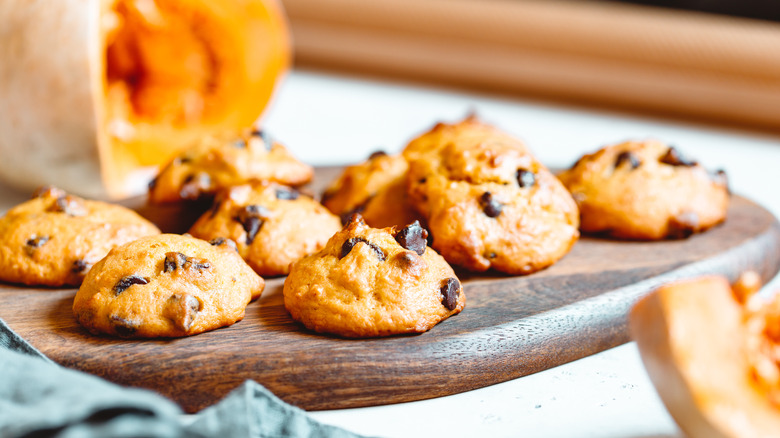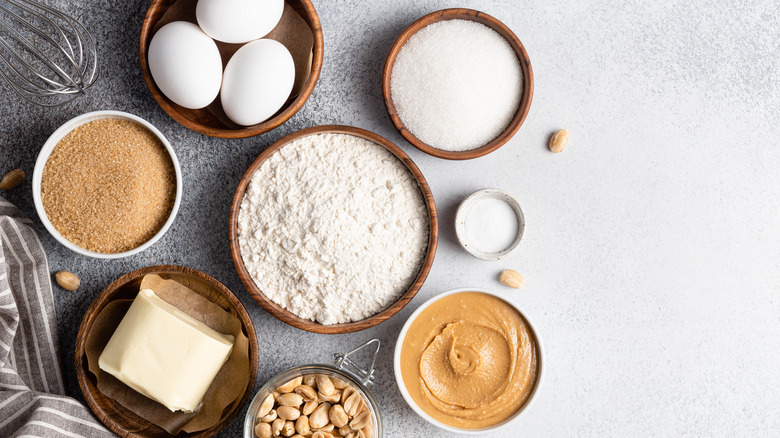The Sugar Swap You Need For Extra Chewy Cookies
To say that Americans love cookies is a monstrous understatement. From the time of childhood, cookies are offered as a special treat, a reward, dessert, and anytime snack. It's ingrained in the psyche that cookies equal good and comfort, and this source of endorphins extends into adulthood — only by this time, you can be the judge of how many you eat (and how often). Sweet, fragrant, chewy, and crunchy, cookies can make a whole mess of negatives feel a little bit better.
In August, Newsweek highlighted a poll conducted in honor of National Chocolate Chip Cookie Day that showed some eye-opening results: The average American adult consumes 21 cookies a month with 35% of those questioned preferring chocolate chip above all other flavors. Rounding out the top four are peanut butter, brownie or chocolate, and oatmeal raisin.
Yes, despite the hundreds of types of cookies available today, it's the classics that people love the most. As far as texture goes, a poll highlighted on Rachael Ray in 2017 pointed out that 35% of cookie eaters like a good crunch, but 65% think a perfect cookie is good and chewy.
Baking really is about science; Perfect measurements are required of ingredients that react together in a way that makes a flawless baked treat. Fortunately, you don't need a PhD in chemistry to create a batch of perfectly chewy cookies. One simple ingredient that you probably already have in your pantry can make all the difference.
Chew on this
Most cookie recipes call for sugar. If yours doesn't, strongly consider destroying said recipe and moving on. Obviously, it's sugar that sweetens and also lends a hand in browning cookies in the oven. To bump up the chew factor in your favorite batch of cookies, swap the granulated sugar for brown sugar. Per Taste of Home, light brown sugar contains about 10% molasses which adds moisture to the recipe, thus creating chewiness. The natural acidity in molasses also reacts with the protein in cookie dough (via eggs) to add even more chew. This will work with sugar cookies, chocolate chip, snickerdoodles, you name it.
Anyone who's taken a substantial amount of time off from baking knows that unattended brown sugar can become rock solid after a while. Have no fear, it's easy to soften up in no time. This sugar substitution may cause your cookies to appear darker than you're used to, but it's just the molasses talking and the perfectly soft and chewy texture will likely erase these small details from your mind completely.

